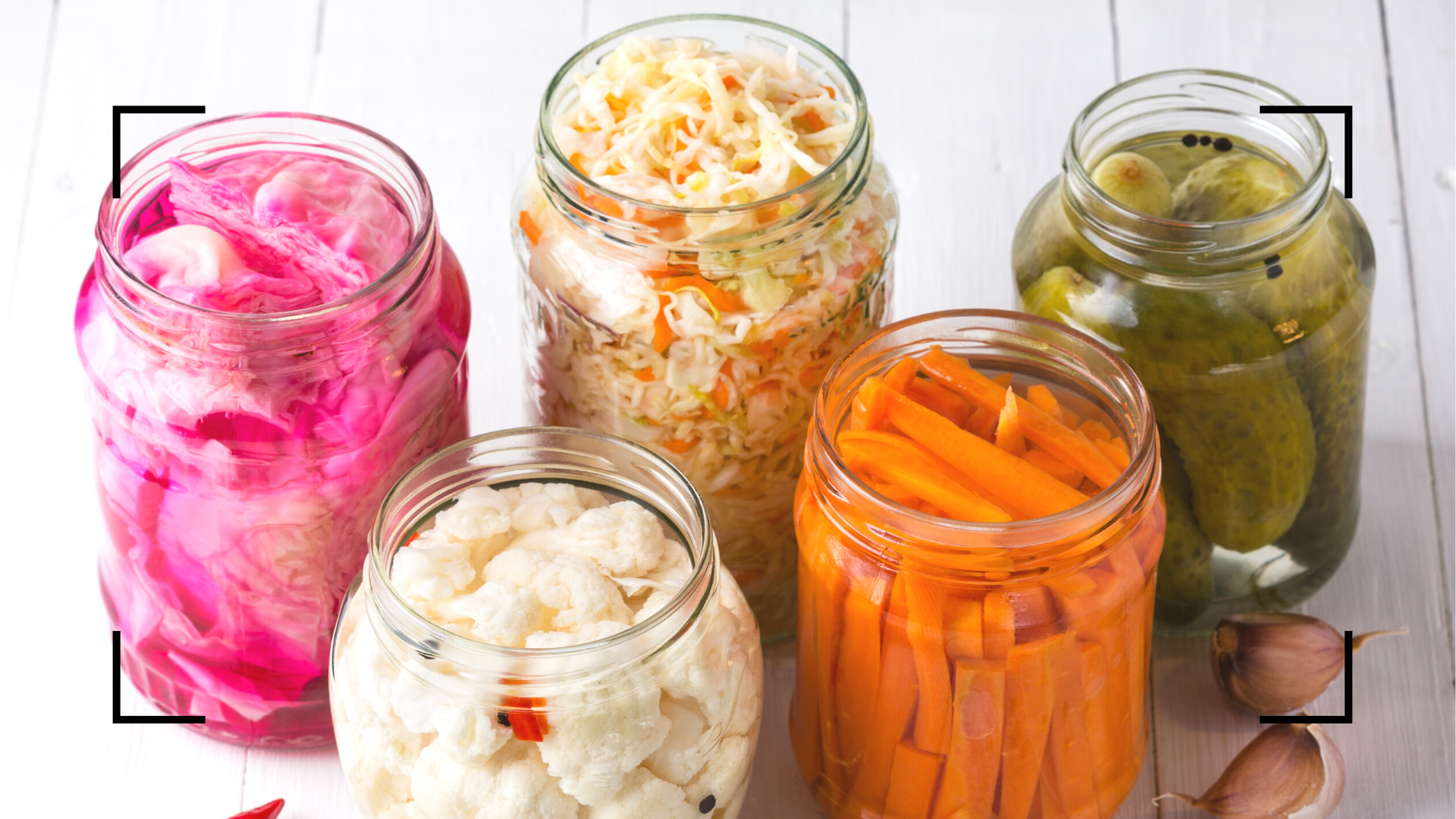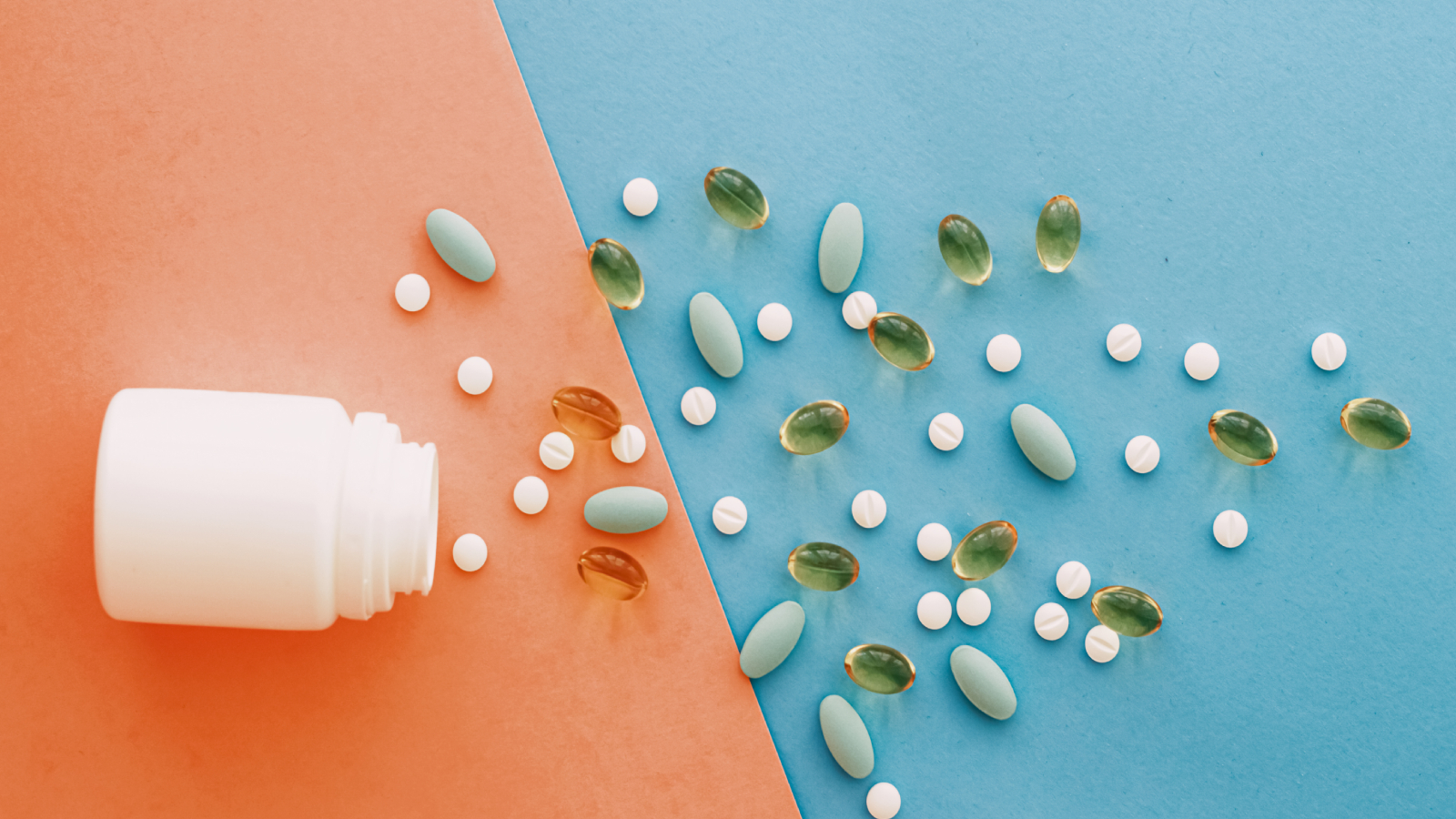What are probiotics and what do they do? Foods with probiotics and how to supplement your diet
Probiotics are the living organisms in your gut that are responsible for a huge portion of your health


It’s not particularly appealing to spend time thinking about bacteria. But we’re here to talk about the good kind of bacteria, the ones that help us digest, feel better, and live a healthier life — namely, probiotics, the healthy bacteria in your gut!
So what exactly are probiotics? What do probiotics do for our bodies? You probably have heard something at this point about probiotics being good for us. Maybe you already know about how much they can help with digestion and there's a strong link between gut health and anxiety. We’ve done the research and found the experts—here’s how you can improve gut health and your whole body can benefit from probiotic influence, plus whether you should count a probiotic supplement among the best supplements for women.
What are probiotics?
“Probiotics are naturally occurring microorganisms found in certain foods and supplements that have a variety of health benefits for the body,” says Jamie Hickey, dietician, and founder of Truism Fitness. They’re responsible for improving digestion, helping to absorb nutrients and regulate immune systems and protecting your system from harmful bacteria. In fact, probiotic supplements are regarded as some of the most powerful immunity supplements.
Yes, probiotics have many more responsibilities in our bodies than just helping with gut health, but that role shouldn’t be discounted either. Probiotics are your gut’s best friend for keeping harmful bacteria in check. Explains Christina Jordan, certified nutritionist for her company Fit Body Weight Loss. “Probiotics are often the missing link for gut health, digestion, and mental health.” They are responsible for maintaining the bacteria balance that your body needs, and “act like your own little superheroes, keeping your body in perfect bacteria harmony".
Probiotics keep out these other, harmful bacteria with sheer numbers. Other bacteria cannot produce in your body if probiotics are crowding them out and doing their good work.
Probiotics vs prebiotics

Jordan clarifies the difference between probiotics and prebiotics. “Prebiotics are helpful compounds in natural foods that help the growth of beneficial microorganisms such as healthy bacteria, also known as probiotics. Essentially, prebiotics are special plant fibers that fuel your probiotic levels to help healthy bacteria grow in your gut. They are different from probiotics and act as the helpers that promote a healthy gut environment in your body.”
If probiotics are your own little superhero bacteria, staunch defenders of your health, prebiotics are the cavalry you send their way to help build up their forces.
Sign up to our free daily email for the latest royal and entertainment news, interesting opinion, expert advice on styling and beauty trends, and no-nonsense guides to the health and wellness questions you want answered.
What happens without probiotics?
What do probiotics do for women? With women’s wellness in mind, we have to take a look at what probiotics do in your body. Our expert insight has told us that we want probiotics, but what happens if we don’t have them? According to Jordan, a lot can go wrong:
- Unexpected feelings of stress and anxiety
- Erratic mood change, including stress, depression, or anxiety
- Recurring urinary tract infections (UTIs) or yeast infections
- Autoimmune issues such as thyroid imbalances, rheumatoid arthritis, and diabetes
- Digestive issues, including irritable bowel syndrome (IBS), constipation, diarrhea, heartburn, and bloating
- Sleep disruptions, such as insomnia
- Sensitive skin, including skin redness, rashes, allergies, acne, and skin inflammation
- Sluggishness and fatigue
- Unexplained weight gain, especially around your stomach area
While helpful bacteria might live in our intestines and aren’t as widely discussed as other aspects of our health, they make themselves known when not present.
Where to find probiotics in your diet
We’re all in agreement, it’s not a good sign if we don’t have probiotics in our diet. But what are foods with probiotics? And what are natural probiotics?
Alice Benjamin, the chief nursing officer for Nurse.org, fills us in on where to find these happy-making bacteria. “There are two ways to get more good bacteria into your gut: fermented foods and dietary supplements.”
Fermented foods are the most natural form of probiotics. They include:
- Yogurt, especially probiotic enriched yogurt
- Kefir
- Kimchi
- Sauerkraut
- Kombucha
- Pickles
- Soft cheeses including cheddar, parmesan, gouda, and swiss
- Low-fat milk and other probiotic drinks
“Probiotic supplements, which are typically sold over the counter, are reserved to treat specific ailments as suggested by your doctor, and not recommended for everyday use,” Benjamin continues.
The best supplements for women might include probiotic supplements—but on a case-by-case basis. No one body, or one gut for that matter, is the same. So your probiotic intake may differ from the other women in your life.
• how to tell when you have a nutrient deficiency
• how to relax your mind and feel less stressed
• this is how a good bedtime routine could help you sleep better
How many probiotics do you need?
“There are so many different probiotic organisms and variables to consider when making recommendations about dosage, delivery methods, and a number of strains,” Benjamin says. “It’s difficult to generalize one optimal dose as ‘adequate’ in providing probiotic effects for everyone.”
Many studies exploring the benefits of probiotics use the term colony forming units (CFU), referring to the concentration of microorganisms in a test sample. But these recommendations differ in the number suggested for women in their 30s and 40s. There’s a wide range of Colony Forming Units (CFU) advice—and for good reason. Probiotics are important but complicated. There are different strains of probiotics, and they’re not always beneficial across the board.
Each probiotic, and prebiotic, have different strains of bacteria. Overdoing it with one will upset the delicate balance in your gut, and could even cause more harm than good.
It’s one of those health issues that might be worth consulting a nutritionist about. Our experts are in agreement about this, though: Consuming probiotic-rich foods like the ones mentioned above will support your helpful bacteria. What probiotics are the best for you will depend on your body's particular makeup.
woman&home thanks Jamie Hickey of Truism Fitness, Christina Jordan of Fit Body Weight Loss, and Alice Benjamin of Nurse.org for their time and expertise.
Lauren is the former Deputy Digital Editor at woman&home and became a journalist mainly because she enjoys being nosy. With a background in features journalism, Lauren worked on the woman&home brand for four years before going freelance. Before woman&home Lauren worked across a variety of women's lifestyle titles, including GoodTo, Woman's Own, and Woman magazine.

